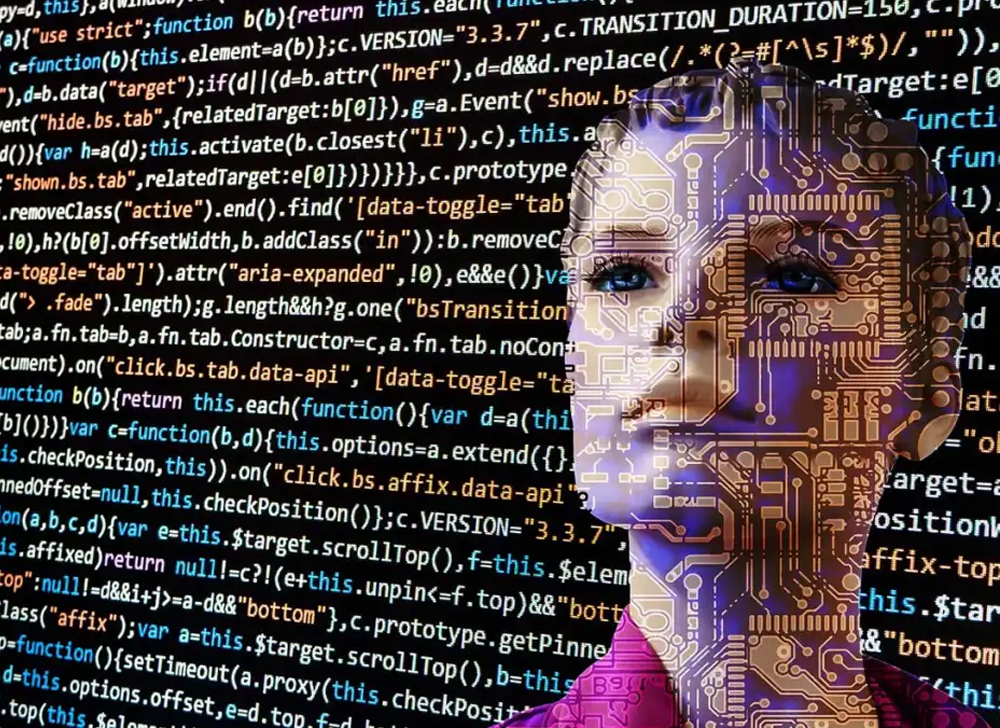INTERNAL BUSINESS OPERATIONS AND SERVICE SECTOR TASKS ARE BEING AUTOMATED AND SIGNIFICANTLY IMPACTED BY ARTIFICIAL INTELLIGENCE.
Robotic Process Automation, also known as RPA, is a rapidly growing field of computer science that applies artificial intelligence programming to automate business tasks typically reserved for white collar jobs. This advancement of software development techniques enables a simulation of white collar tasks beginning with the most repetitive operations such as bookkeeping. RPA promises to free humans from the repetitive nature of work enabling a refocusing of the global workforce towards more innovative and creative work.
Simulating Human Input and Output Variables
Although RPA begins by targeting the most routine and repetitive work, more complex tasks can be automated as well. This represents a deeper and stunning penetration into the workforce by AI. In fact, complex decisions based on expert system knowledge, can be applied far beyond routine and simple tasks. The software automation process results from a computer program observing and learning the actions of workers. The AI correlates input variables in the form of keystokes and clicks, to output variables in the form of completed tasks.
The automation can also take place by a combination of a narrow AI engine with a human design layer. Once a design is created, it can be scaled at large by the AI engine, executing tasks to millions of people within seconds and out-performing human capabilities by a long shot. As AI technology develops and advances into the future, the capability of RPA also advances.
Cost Model Decrease and Service Level Increase
During the industrial revolution the volume of products exploded, resulting from a shift from manual to automated manufacturing. Today , a similar phenomenon is taking place with AI automating the current knowledge based or service workforce. Just as product prices fell resulting from abundance, so too will RPA likely lead to a similar result with white collar tasks.
The result is a reduction in cost to deliver knowledge- based services by automating internal operation and service -based tasks. Automation also increases service levels manifested by the extended reach of intellectual automation. Knowledge-based Expert Systems can incorporate and interpret vast amounts of data at lightning speeds. This results in an accelerated delivery of service-based mandates. Humans manually inputtingdata such as typing letter by letter, making phone calls and sending emails is becoming an ancient, outdated practice.
Business Efficiency and Early Adopters
As Automation capabilities increase so does the efficiency of work. Efficiency, measured as service output per unit of time, stands to be significantly impacted by RPA. This advancing technology will bring significant and remarkable advantages for early adopters of internal business operations and service-based models. A head start means that implementation is completed ahead of the masses. In fact, some experts predict that those who are slow to adapt will be threatened and perhaps extinguished by this technology, underscoring the significant impact of Artificial Intelligence to humanity.
U.S.
For more information on Product Intelligence by A.I. Systems, visit SHAIN’S Conversational AI
For more information on Automating R&D Tax Credits by A.I. Systems, visit SHAIN’s R&D Tax Credit
CALL US : 1.844.823.2585
CANADA
For more information on Product Intelligence by A.I. Systems, visit SHAIN’S Conversational AI
For more information on Automating SR&ED Tax Credits by A.I. Systems, visit SHAIN’s SR&ED Tax Credit
CALL US : 1.844.823.2586

 - EN
- EN 




